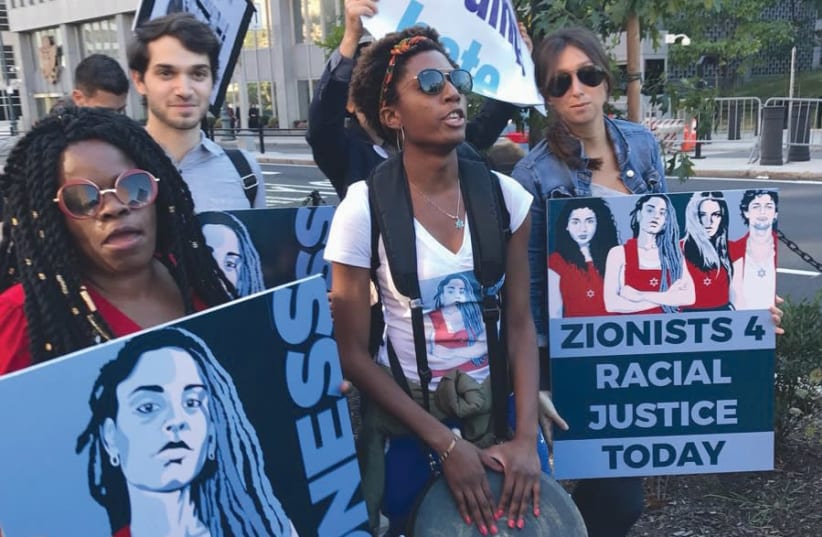Controversy erupted, however, after Saint Jude, born Catherine Saint Jude Pestorius, tweeted that “I am in no way affiliated with the Zioness movement.”“I’m just a South African girl who rides a motorbike, makes music and has no ties to Israel or the zionest [sic] movement,” she added.#Jews and #Zionists are a diverse group. Thank you to those of you who noted the need for our movement to show that. #Zioness pic.twitter.com/KgXyIcCK9B
— Zioness (@ZionessMovement) August 25, 2017
Hours after her posts hit Twitter, Abunimah published an article titled “Fake feminist group Zioness used rapper’s image without her approval,” where he claims the group “appears to be an astroturfing effort” that seeks to “portray support for Israel as feminist, in line with the propaganda strategy adopted by Israel and its lobby groups to try to co-opt progressive support.”Astroturfing refers to a strategy where an organization (private or public) masks its support for a message by making it appear as though it originates from grassroots participants.The Zioness Movement explained in its social media statement that “the images used in the... posters, logos, and graphics are representational.They are intended to reflect the diversity, strength, and courage of the Zioness community, which now includes thousands of women and men across the country who stand tall and proud for progressive values, including Jewish self-determination.”“We were drawn to the photo of the model representing the African-American Zioness because she is bold, confident, proud, and beautiful – all qualities that embody the Zioness Movement.”The group said that it purchased all rights to use this photo through Getty Images – “rights which were explicitly sold to Getty by the model herself, who profited in the exchange.”Zioness, however, agreed to remove images of Saint Jude from its promotional advertising in accordance with her wishes.“Although we are under no obligation to do so, the Zioness Movement will not use the image of this model moving forward, as we respect her voice and privacy.”The Zioness statement concluded by suggesting that Abunimah and others like him are terrified at the success of the movement in activating and empowering American Jewish progressives “to fight for women’s empowerment, civil rights, human dignity and equality for all.”The Electronic Intifada is an anti-Zionist website dedicated to promoting Palestinian rights and the Boycott, Divestment and Sanctions movement. Neither Abunimah nor representatives for the Electronic Intifada site responded to a request for comment by The Jerusalem Post.I'm just a South African girl who rides a motorbike, makes music and has no ties to Israel or the zionest movement. https://t.co/uL86bMDxbc
— DOPESAINTJUDE (@DopeSaintJude) January 22, 2018
